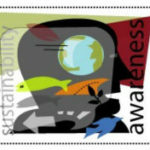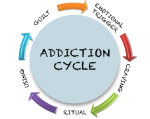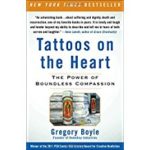I haven’t posted anything to this blog for sometime.

My commitment has not waned to increasing sustainability awareness and advancing the voices of those acting on behalf of Mother Earth and her children. We continue to add these voices to
EarthSayers.tv and are seeking partners to expand the availability of our content on websites that share our commitment.
Connecting
Rather, my sustainability work turned out to not only include ten years of curating the voices of sustainability from across the globe, but five years of living in a caring community, learning, getting involved in addressing the issue of safety for all of us, and reframing the neighborhood from an “entertainment” district to caring community. A second project is intended to change a negative image of our residents to one that is diverse and caring. It got me out of the office and into the streets taking photos of and meeting my neighbors and their dogs. They are published here. It’s also about getting support for an urban dog ballpark in our neighborhood.
Interdependence
 Early in 2017 I came to the realization that the soul of sustainability lies within our interdependence or oneness or kinship. It was a
Early in 2017 I came to the realization that the soul of sustainability lies within our interdependence or oneness or kinship. It was a lesson I was learning locally within my community where I identify as a sustainability advocate. I live in Portland’s Caring Community, Old Town Chinatown, where a majority, 57% of the housing is dedicated to the homeless in the form of supportive care housing and shelter beds. Adopted in the 1970’s the housing landscape reflects a model of care that works and is overworked as homelessness increases.
This is also a place with a high crime rate for narcotic/drug offenses and assaults in a time when our police force is understaffed and those trained to “coordinate the response of Law Enforcement and to aid people in behavioral crisis resulting from known or suspected mental illness and or drug and alcohol addiction” are too few. In Portland this is the mission of the Behavioral Health Unit within the Police Bureau. A model of policing that works for the situation we find ourselves in – the solution is recovery not jail. They too are overworked.
“The biggest deficit that we have in our society and in the world right now is an empathy deficit. We are in great need of people being able to stand in somebody else’s shoes and see the world through their eyes.” – Barack Obama
Under the banner of sustainability advocate I began to integrate the personal with the professional and in the process discovered that interdependence is the foundation, the principle for acting on behalf of future generations and getting to the heart of
things be they local or global. I came to think of it as the soul of sustainability. It also places empathy at the center of all action-taking as we express compassion through our work.
“This problem of addiction is not only a health crisis but a spiritual crisis.
The situation worsens when society sees addiction as a shameful condition — those in need don’t reach out to others for help; the community doesn’t provide treatment services.” – Paul Steinbroner
Health and Spiritual Crisis
And then came this opioid epidemic. My filmmaker friend, Paul Steinbroner, needed some marketing help in getting his latest film project, Called From Darkness, into distribution. Paul heads up a publishing and distribution company specializing in multi-media projects related to addiction, neuropharmacology, and brain chemistry.
“The torrent of people who have died in the opioid crisis has transfixed and horrified the nation, with overdose now the leading cause of death for Americans under 50.“
The Epidemic
There is a great need for increasing awareness about the epidemic and educating people who may see themselves as disconnected, but know by feel that the situation calls for all hands on deck. Nearly all of us are connected to someone – family member, friend, colleague – who is directly affected by addiction and often homeless on the street. One doesn’t have to live in a neighborhood that cares for the sheltered and unsheltered to know that a majority of our homeless have a mental illness and/or drug addiction.
In Portland, of the 4,177 homeless people counted, 2,527 (60.5%) reported living with
one or more disability, including a mental disability, chronic physical condition, and/or a substance-use disorder. The number of people with disabling conditions increased by
16.1 percent between the 2015 and the 2017 Point-In-time counts.
Addiction as a healthcare issue is in the realm of social sustainability. It’s of sizable proportions: an epidemic, possibly resulting in hundred of thousands of deaths with economic repercussions that could bankrupt our communities; making the poorest of neighborhoods  unlivable; and turning family life into a nightmare. The New York Times article, 1 Son, 4 Overdoses, 6 Hours, makes this point: “Drug deaths draw the most notice, but more addicted people live than die. For them and their families, life can be a relentless cycle of worry, hope and chaos.”
unlivable; and turning family life into a nightmare. The New York Times article, 1 Son, 4 Overdoses, 6 Hours, makes this point: “Drug deaths draw the most notice, but more addicted people live than die. For them and their families, life can be a relentless cycle of worry, hope and chaos.”
 unlivable; and turning family life into a nightmare. The New York Times article, 1 Son, 4 Overdoses, 6 Hours, makes this point: “Drug deaths draw the most notice, but more addicted people live than die. For them and their families, life can be a relentless cycle of worry, hope and chaos.”
unlivable; and turning family life into a nightmare. The New York Times article, 1 Son, 4 Overdoses, 6 Hours, makes this point: “Drug deaths draw the most notice, but more addicted people live than die. For them and their families, life can be a relentless cycle of worry, hope and chaos.” Start Here
I have observed that to start from the point of “not me, but them” or to draw a line between the personal and the professional, leaving “solutions” to those in the healthcare sector doesn’t lead to furthering sustainability principles. I find framing the challenge from the principle of inter- connection and thinking of it as going to the soul of sustainability works. It works for not only knowing what to do next, but having the confidence to move forward despite inexperience or feelings of being overwhelmed or to hear yourself think, it’s not my problem.
connection and thinking of it as going to the soul of sustainability works. It works for not only knowing what to do next, but having the confidence to move forward despite inexperience or feelings of being overwhelmed or to hear yourself think, it’s not my problem.
 connection and thinking of it as going to the soul of sustainability works. It works for not only knowing what to do next, but having the confidence to move forward despite inexperience or feelings of being overwhelmed or to hear yourself think, it’s not my problem.
connection and thinking of it as going to the soul of sustainability works. It works for not only knowing what to do next, but having the confidence to move forward despite inexperience or feelings of being overwhelmed or to hear yourself think, it’s not my problem.To start, here is a trailer of Called From Darkness by Paul Steinbronner as part of the Called from Darkness film project entitled A Home Boy’s Joy Ride. It features the voice of artist Fabian Debora and the work of Fr. Greg Boyle the founder of Home Boy Industries and author of Tattoos on the Heart: The Power of Boundless Compassion.
Future blogposts will continue to explore the Soul of Sustainability and the associated topics of the opioid epidemic, homelessness, and livability in our communities including housing and public safety.
